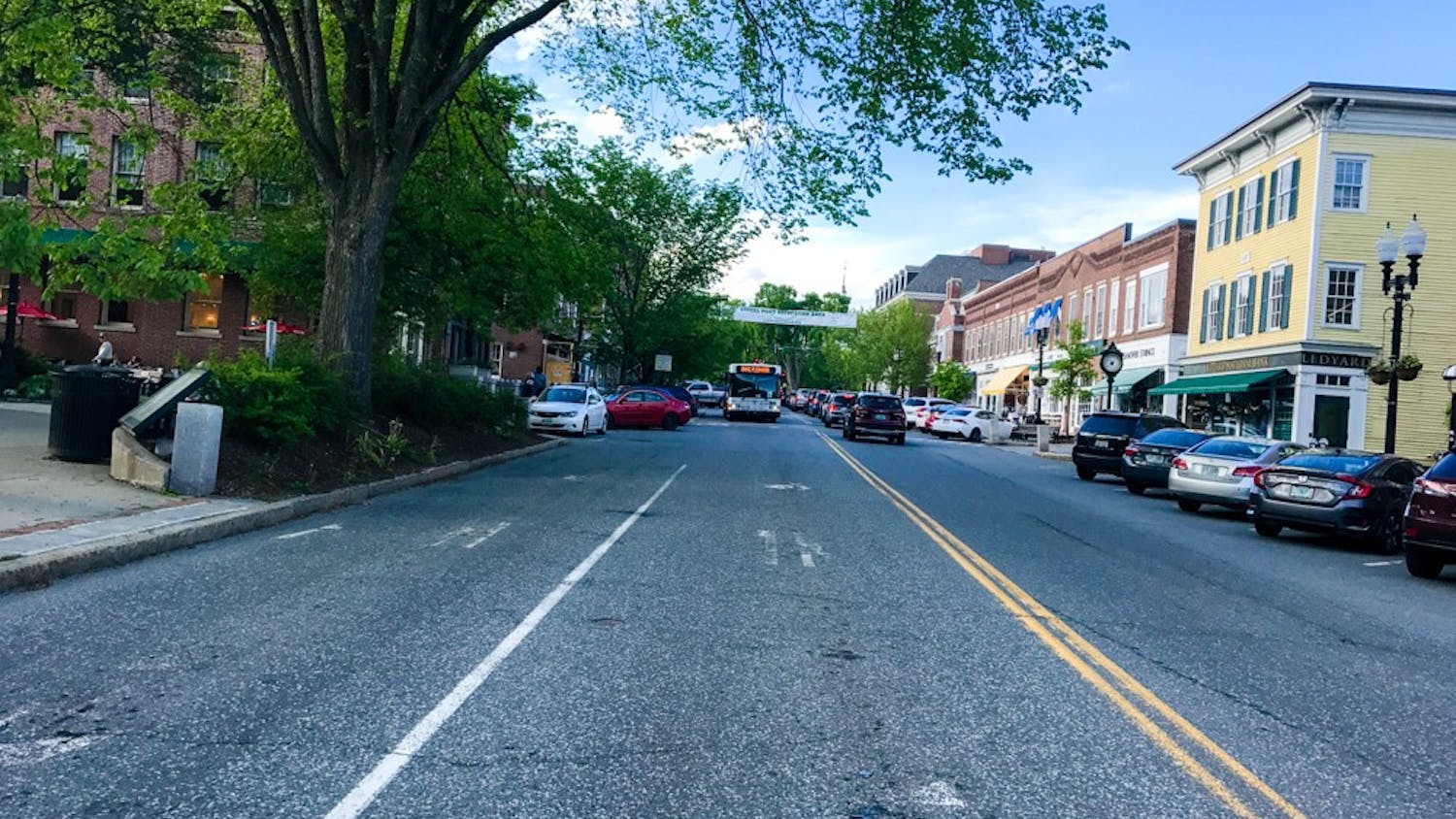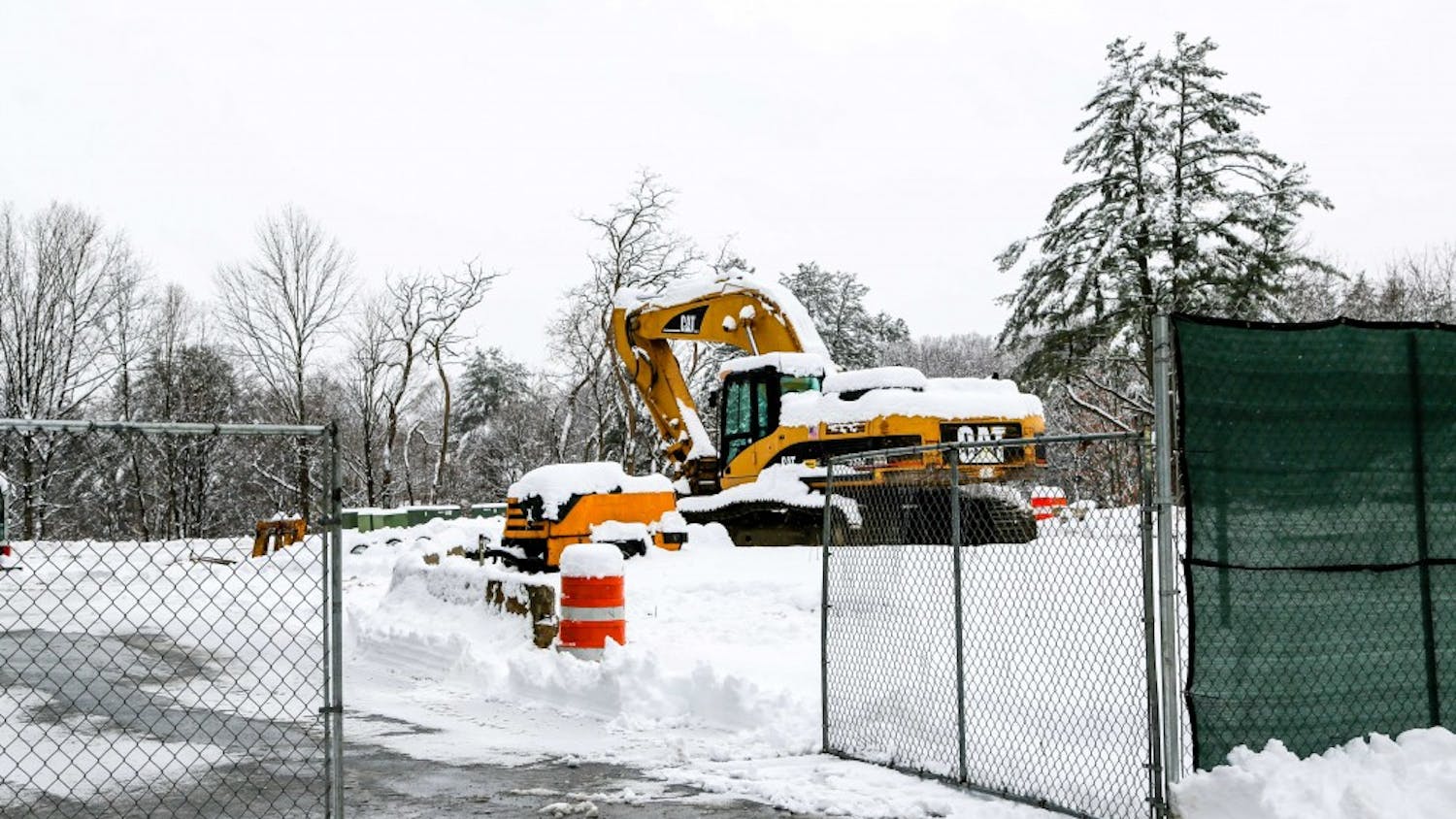Construction of the new Center for Engineering and Computer Science on the west end of campus has been temporarily suspended after workers dug a 70-foot-deep hole 10 feet south of the intended location.
The College filed a modification proposal of its site plan to the Hanover planning board to allow for the construction of the building to continue on the current area on Wednesday, according to College spokesperson Diana Lawrence.
Hanover town manager Julia Griffin said that the planning board is arranging a supplemental meeting before the end of July to consider this request.
The Thayer School of Engineering’s $200 million donor-funded expansion project includes a 340-vehicle parking garage along with the 160,000-square-foot building that will accommodate the Thayer School of Engineering, the computer science department, the Magnuson Center for Entrepreneurship and the Electron Microscope Facility.
The new building is part of an integrated west end master plan that includes the Arthur L. Irving Institute for Energy and Society, which is scheduled for completion by the summer of 2021.
Dartmouth’s Campus Services website reported that Turner Construction Company — the New York-based construction firm hired by the College to execute the project — discovered the error during preparations to install a tower crane.
Turner Construction’s vice president and general manager Meaghan Hooper-Berdik said that the company “is working with the College to evaluate the root cause of the error and to help determine an appropriate path forward.”
Lawrence wrote in an email statement that the College has assembled a group of internal and external representatives with design, project management and legal expertise and is taking appropriate steps to “ensure the financial impact to Dartmouth is minimized.”
Lawrence said she expects to have a better understanding of how changes could affect the College’s budget and project schedule in the coming weeks.
According to Griffin, it is important to propose a new plan as soon as possible, and the planning board is continuing to provide the College with additional insight to help refine its thinking about possible options for a future course of action.
“Developments and changes like these are tough in terms of adhering to the construction schedule but also for the contractors — they are sitting idle or quickly have to find other projects to work on in the meantime,” Griffin said.
Griffin also recognized that this error could lead to significant changes to the site plan.
A change in building location to fit the already excavated area would require a site plan amendment, according to Hanover director of planning, zoning and codes Robert Houseman. Houseman said that the planning board’s decision-making process would depend on how significant the proposed modifications are.
“There are issues of storm water improvements, grading plans, lighting layout and landscaping approvals,” Houseman said. “If the building moves nominally and doesn’t alter any of that, then I don’t think there needs to be any planning board approval. If, however, it shifts and alters the grading, utility layout and the lighting plan — all of those have a big impact on the site and warrants a full public hearing.”
According to Griffin, most of the complaints from abutters were made regarding the noise generated by the excavation work, which began last winter.
“If the location were to move more north and require additional excavation, that would be more intrusive in the neighborhood,” Griffin said.
Houseman also emphasized that the public hearing process ensures that abutters have the opportunity to speak up, ask questions and raise concerns about the effects of the project.
“The planning board then renders a decision to ensure that the impact to abutters are mitigated and that the site plan approval is fully compliant with our regulations,” Houseman said.



